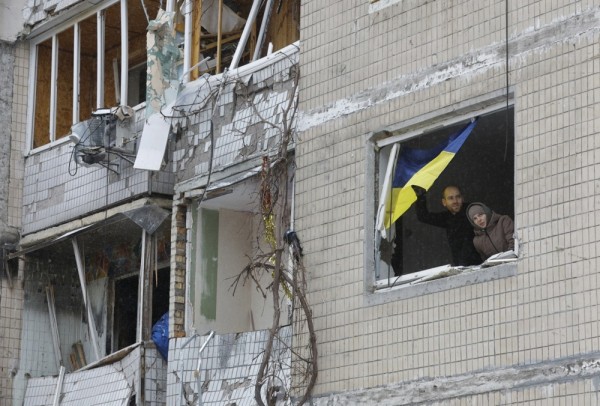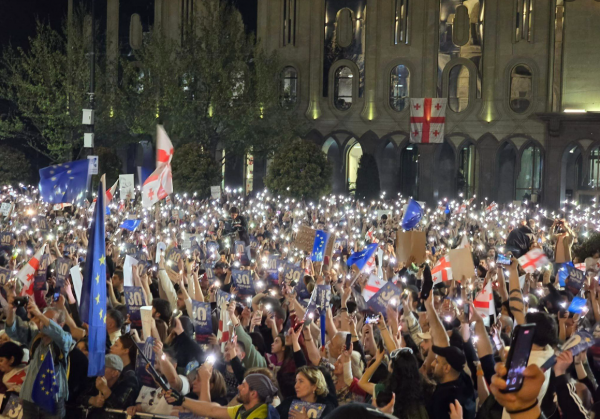H.E. Rudolf Schuster
President
Bratislava
Slovak Republic
Fax: + 421 7 544 17 532
Vienna, 15 November 2001
Your Excellency,
The International Press Institute (IPI), the global network of editors, leading journalists and media executives, is disappointed that the Slovakian parliament rejected an amendment to the Penal Code that would have abolished provisions on insult laws.
According to the information provided to IPI, on 8 November, a member of parliament (MP) for the Slovak Democratic Coalition, Tomas Galbavy, placed before the house an amendment to the Penal Code which would have removed from the statute books the crimes of defaming the institutions of the government, the parliament and the Constitutional Court, as well as the president of Slovakia. In a free vote, 55 of the assembled MP’s voted for the amendment, while four voted against, 45 abstained and 6 failed to vote. As a result, the amendment was rejected by the house.
Responding to the vote, the head of the Justice Ministry and vice chairman of the Christian Democratic Movement (KDH), Daniel Lipsic, said that the decision was a “black day for free speech” and “a free society cannot criminalise expression of opinion that is shocking, offensive or disquieting for the state or part of its citizens”. An independent MP, Peter Tatar, said, “it [the present law] is the living ghost of communism”. Commenting on the decision, Tomas Galbavy said, “I am sad, this is not a good sign for this parliament as we have, for the first time, had a chance of showing, without pressure from the Constitutional Court, that we respect freedom of speech…”.
Despite the disappointing decision, Galbavy said it was his intention to continue with his struggle to remove the offending laws. He stated that a petition would now be placed before the Constitutional Court and that he would invite the court to consider whether the sections of the Penal Code, concerning insult, were compatible with the Slovakian Constitution which was signed in 1991.
Two days after the vote, there were allegations that Your Excellency had sought to influence the free vote. A report in the Slovak daily newspaper Novy Cas on 10 November said that members of the Democratic Left Party (SDL) and the Party of Civic Understanding (SOP), both members of the ruling coalition, had been influenced by the president and therefore refused to support the proposal. Speaking to the Novy Cas, Tatar said, “several MP’s believe [the] president had influenced the voting on the proposal. However, I cannot confirm that with an absolute certainty”. One of the main allegations is that the president spoke to members of the SDL and SOP prior to the vote, thus infringing the notion that MP’s were allowed to follow their own consciences in this matter.
The insult laws, which were the subject of the proposed amendment, have recently been applied to a journalist at Novy Cas, Ales Kratky. In June, Kratky was charged with article 103 of the Penal Code which states that anyone who “publicly defames the president for the performance of his duties or his activities in his public life” can receive a maximum prison sentence of two years. The charge was in response to an article in the newspaper, dated 26 May, which criticised Your Excellency’s state of the nation speech. Last year, in March, the journalist, Vladimir Mohorita, was sentenced to four months’ imprisonment for “publicly defaming the country and its officials” under article 102 of the Penal Code.
Although IPI would not wish to comment on the allegations that Your Excellency interfered in the free vote, it does believe that the people of Slovakia have been ill served by their elected representatives. The sections concerning insult are a throw back to the harsh days of communism when officials sought to stifle free debate and suppress individual opinions. By failing to remove these laws, the government of Slovakia is identifying itself with the failed communist regime at a time when it should be expanding the freedom of individuals in-line with the fundamental principles of the Council of Europe and the European Union.
IPI takes note of the fact that Slovakia is a candidate for future membership of the European Union and we would remind Your Excellency that the prosecution of journalists for expressing opinions on institutions and elected politicians is incompatible with this candidature. In order for a democracy to succeed there must be free debate on issues of importance, however discomforting or embarrassing these issues may be to elected officials. Any attempt to control the free flow of information is deeply damaging and serves only to reinforce the impression that Your Excellency’s government has not pledged itself to creating a free and open society.
On a related matter, it is IPI’s firm belief that the introduction of greater freedoms in Slovakia should be at the heart of government decision-making and should form part of Your Excellency’s commitment to the people of Slovakia. Therefore, the proposed amendment to the Penal Code should have had the full support of both the government and Your Excellency. In remaining equivocal on this issue, both Your Excellency and the government have lost an opportunity to become a role model for other countries in the eastern Europe which have also retained repressive laws from the communist era.
With the above in mind, IPI would encourage Your Excellency to review the current laws regarding freedom of expression and ensure that they are compatible with the European Convention on Human Rights. We would also invite Your Excellency to do everything possible to ensure that the prosecution of Ales Kratky is discontinued, thus ensuring that journalists are allowed to report freely in Slovakia.
We thank you for your attention.
Best regards,
Johann P. Fritz
Director


